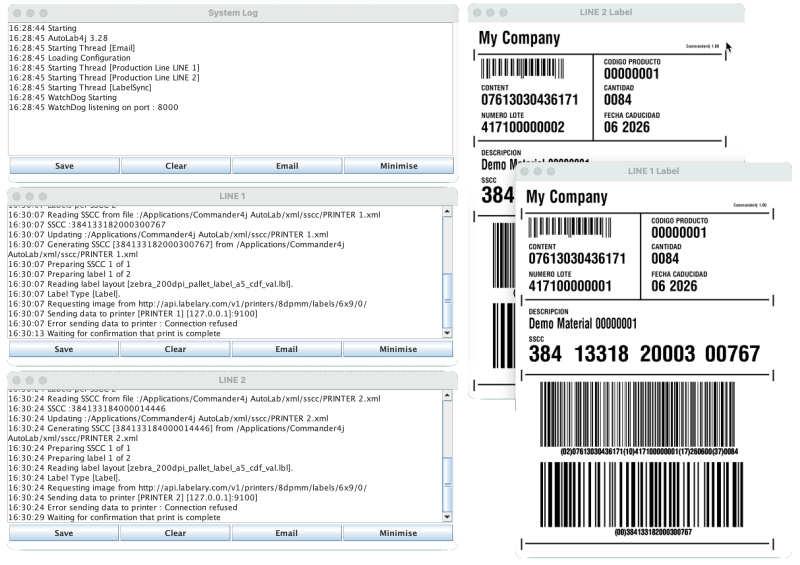Overview AutoLab4j: Difference between revisions
No edit summary |
No edit summary |
||
| Line 9: | Line 9: | ||
AutoLab4j would typically be installed on a workstation next to the production line/labeller and as such you may have multiple copies running on a site. LabelServer handles mutiple printers from a central location but does not have any visual user interface. | AutoLab4j would typically be installed on a workstation next to the production line/labeller and as such you may have multiple copies running on a site. LabelServer handles mutiple printers from a central location but does not have any visual user interface. | ||
The data used for the label is supplied in a CSV See [[ | The data used for the label is supplied in a CSV See [[AutoLab4j Dataset CSV]]. | ||
The label template file is combined with the data to create the commands sent to the printer. See [[Example ZPL]] | The label template file is combined with the data to create the commands sent to the printer. See [[Example ZPL]] | ||
Revision as of 18:34, 25 August 2024
Overview
AutoLab4j is a program which has been developed to enable automatic label printing based on a trigger signal from a modbus device.
It was created to compliment the Commander4j application but in theory could be used with other systems.
This application is quite similar in role to the LabelServer program. The main difference is that AutoLab4j runs as a forground application with tray icon and has a visual component including a label preview, whereas the LabelServer program runs as a service and is normally run on a server.
AutoLab4j would typically be installed on a workstation next to the production line/labeller and as such you may have multiple copies running on a site. LabelServer handles mutiple printers from a central location but does not have any visual user interface.
The data used for the label is supplied in a CSV See AutoLab4j Dataset CSV.
The label template file is combined with the data to create the commands sent to the printer. See Example ZPL
There are four main sections to this document
